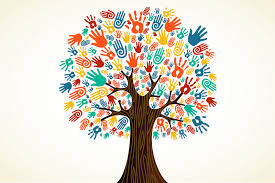
A free therapeutic counselling support is available now for people engaging with, or affected by, the Disability Royal Commission. This includes children and young people in care who have disability and have experienced trauma.
Relationships Australia South Australia (RASA) have received funding until 2022 from the Australian Government to provide counselling for people who have a disability (physical, psycho-social, intellectual, or learning) and who have experienced trauma as a result of violence, abuse, neglect, or exploitation.
This service is also open to people who are supporting those affected, such as parents, foster and kinship carers, support workers, siblings, and social workers. The child or support person does not have to be directly engaged with the Royal Commission but may be affected by the Royal Commission.
RASA Counsellor Zoë Dalton said this program addresses a gap in services for children and young people in care, with the services of highly experienced counsellors.
“Essentially, there are gaps in trauma-informed counselling for all people with disabilities. This gap has been particularly noted around the supports and care for children in care, residential care and detention. There just does not appear to be a therapeutic service that wraps around their needs from a disability perspective that is openly available, which is why this service has been established.” Zoë said.
“I have observed a lack of therapeutic support for people working with young people in care with a disability. This can have a flow on effect to the wellbeing and care provided to the young person. Our trauma and disability-informed counsellors can address this area too.”
There are currently five counsellors with capacity to see clients immediately, with no waitlists or delays. Counselling sessions are available at the RASA office in Hindmarsh or at a person’s home, school, or workplace. Sessions are also available via phone and video calls.
To make an appointment call RASA on 1800 577 571 or email drccounselling@rasa.org.au or for more information visit the service page here. You can also find out more about the service and support groups through RASA’s Facebook and Twitter.
